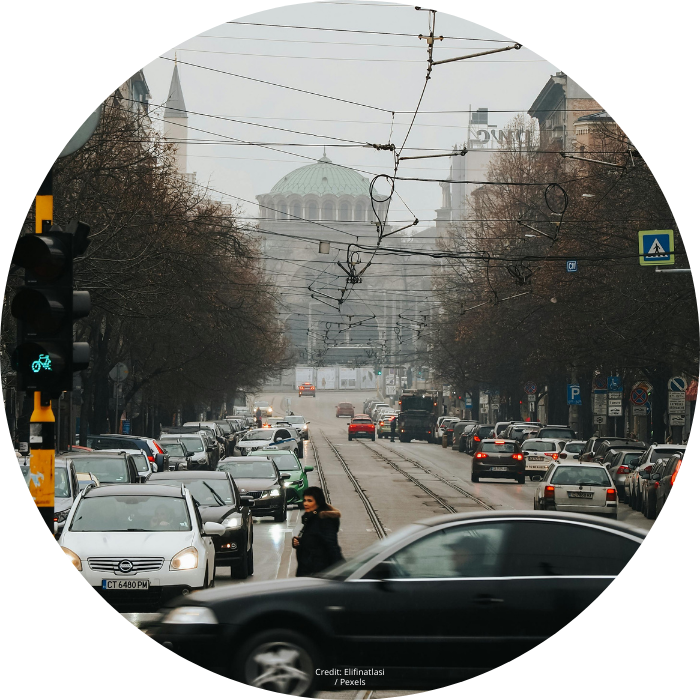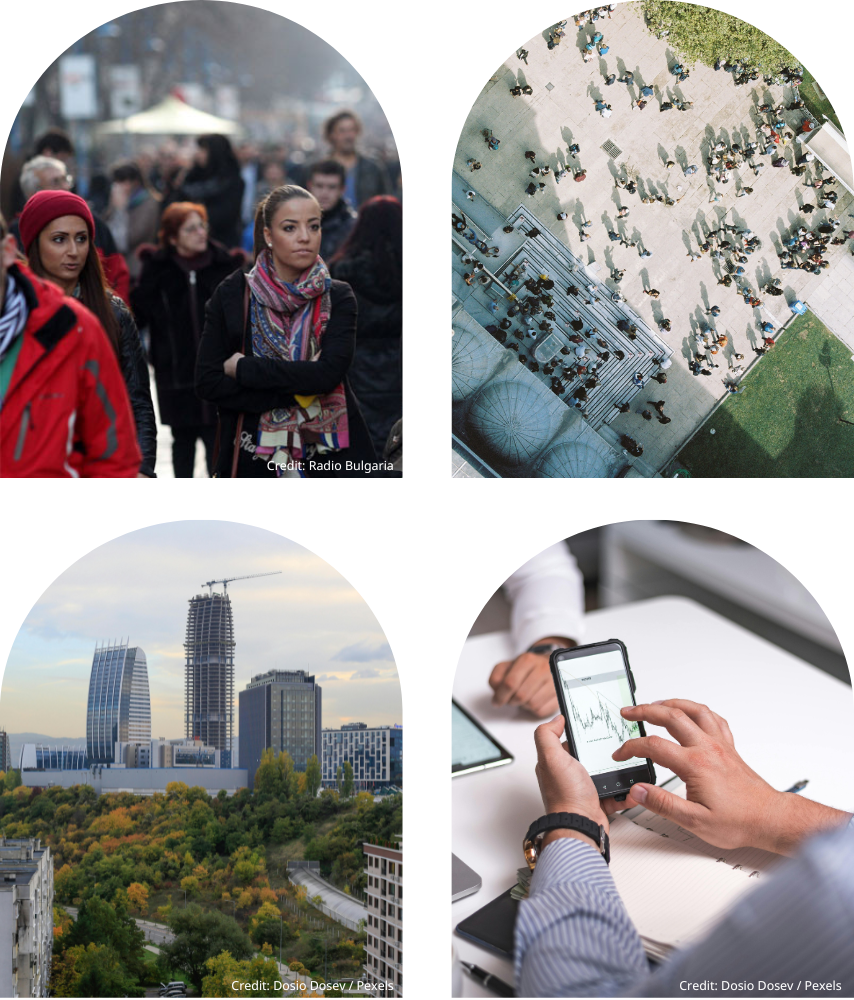Air pollution in cities
The economic costs
Air pollution chokes economies. Each year, toxic air contributes to sickness and lost workdays that impact workers’ health and incomes. It damages businesses through reduced productivity, work absences and lower agricultural crop yields, and strains our healthcare systems. Breathe Cities is taking action to clean our air to protect livelihoods, boost local economies and nurture healthy, thriving and sustainable cities.


Economic costs
of air pollution
Toxic air is bad for business. When employees breathe polluted air, they are more likely to get sick and experience reduced cognitive performance.
Polluted air affects some urban workers more than others, particularly those employed near industrial sites and high-traffic areas.
Low-income workers often have limited choices regarding where they live and work, less access to healthcare and sick leave, and fewer resources to manage financial strain from missed workdays. As a result, they may experience greater health problems and more disruptions to their livelihoods when ill.
The cost of polluted air is felt directly in cities around the world.
For example, in Sofia, Bulgaria, over 68% of highly-skilled employees limit their working hours because of poor air quality. Poor air quality also impacts talent recruitment, as cities with severe air pollution are increasingly viewed as less desirable places to work and live.
Treating the health conditions caused by toxic air also places a great burden on healthcare systems.
It’s estimated that in 2019, the global cost of the health impact of air pollution is $8.1 trillion - around 6% of global GDP and almost double the annual GDP of entire countries like Japan and Germany.
Toxic air also has an impact on the agricultural sector.
Pollutants dissolve in the soil when it rains or are directly absorbed by the plants we rely on for food or textiles. Crops like wheat, beans, peanuts, cotton, onions, potatoes, barley and spinach can be damaged as they are sensitive to air pollutants, while toxic air can make it more difficult for pollinators to detect the scent of flowers. This can reduce the size of harvests, which impacts farmers’ livelihoods and food security.

Solutions to tackling
air pollution to drive
economic growth
Cleaning the air in cities will help people and businesses thrive, boost economies and help grow sustainably. Many solutions to tackle air pollution can create good, green jobs and business opportunities in industries ranging from sustainable transport to retail. For example, making city centres safer and more accessible to pedestrians can benefit local businesses and shops through increased foot traffic.
By making our cities more compact, connected and coordinated, we could save a total of $17 trillion by 2050 and boost economic growth through the streamlined access provided to jobs and homes. In Accra, for example, implementing clean air measures could save the city an estimated $216m between 2023-2040, which was about 20% of the Ghana government’s total health budget in 2022 ($1.1 bn).







